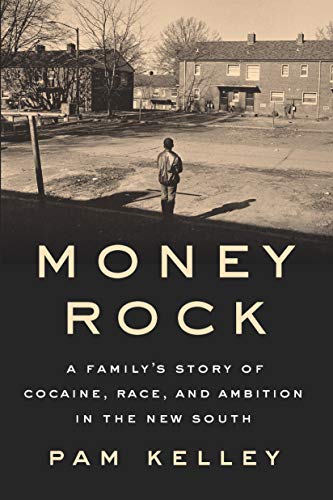-
Lee Kuan Yew: The Grand Master's Insights on China, the United States, and the World
Graham Allison, Robert D. Blackwill, Ali Wyne, Henry A. Kissinger
eBook (The MIT Press, Feb. 1, 2013)Grand strategist and founder of modern Singapore offers key insights and controversial opinions on globalization, geopolitics, economic growth, and democracy.When Lee Kuan Yew speaks, presidents, prime ministers, diplomats, and CEOs listen. Lee, the founding father of modern Singapore and its prime minister from 1959 to 1990, has honed his wisdom during more than fifty years on the world stage. Almost single-handedly responsible for transforming Singapore into a Western-style economic success, he offers a unique perspective on the geopolitics of East and West. American presidents from Richard Nixon to Barack Obama have welcomed him to the White House; British prime ministers from Margaret Thatcher to Tony Blair have recognized his wisdom; and business leaders from Rupert Murdoch to Rex Tillerson, CEO of Exxon Mobil, have praised his accomplishments. This book gathers key insights from interviews, speeches, and Lee's voluminous published writings and presents them in an engaging question and answer format. Lee offers his assessment of China's future, asserting, among other things, that “China will want to share this century as co-equals with the U.S.” He affirms the United States' position as the world's sole superpower but expresses dismay at the vagaries of its political system. He offers strategic advice for dealing with China and goes on to discuss India's future, Islamic terrorism, economic growth, geopolitics and globalization, and democracy. Lee does not pull his punches, offering his unvarnished opinions on multiculturalism, the welfare state, education, and the free market. This little book belongs on the reading list of every world leader—including the one who takes the oath of office on January 20, 2013.
-
Money Rock: A Family’s Story of Cocaine, Race, and Ambition in the New South
Pam Kelley
Hardcover (The New Press, Sept. 25, 2018)An ambitious look at the cost of urban gentrification.”Atlanta-Journal ConstitutionKelley could have written a fine book about Charlotte’s drug trade in the ’80s and ’90s, filled with shoot-outs and flashy jewelry. What she accomplishes with Money Rock, however, is far more laudable.”Charlotte MagazinePam Kelley knows a good story when she sees one―and Money Rock is a hell of a story. . . like a New South version of The Wire.”Shelf Awareness Meet Money Rock―young, charismatic, and Charlotte’s flashiest coke dealer―in a riveting social history with echoes of Ghettoside and Random Family Meet Money Rock. He’s young. He’s charismatic. He’s generous, often to a fault. He’s one of Charlotte’s most successful cocaine dealers, and that’s what first prompted veteran reporter Pam Kelley to craft this riveting social history—by turns action-packed, uplifting, and tragic—of a striving African American family, swept up and transformed by the 1980s cocaine epidemic. The saga begins in 1963 when a budding civil rights activist named Carrie gives birth to Belton Lamont Platt, eventually known as Money Rock, in a newly integrated North Carolina hospital. Pam Kelley takes readers through a shootout that shocks the city, a botched FBI sting, and a trial with a judge known as “Maximum Bob.” When the story concludes more than a half century later, Belton has redeemed himself. But three of his sons have met violent deaths and his oldest, fresh from prison, struggles to make a new life in a world where the odds are stacked against him. This gripping tale, populated with characters both big-hearted and flawed, shows how social forces and public policies—racism, segregation, the War on Drugs, mass incarceration—help shape individual destinies. Money Rock is a deeply American story, one that will leave readers reflecting on the near impossibility of making lasting change, in our lives and as a society, until we reckon with the sins of our past.
-
Where'S Will?: Find Shakespeare Hidden in His Plays
Anna Claybourne
Hardcover (The Ivy Press, )None
-
On the Train: A Shine-a-Light Book
Carron Brown, Bee Johnson
Hardcover (The Ivy Press, )None
-
The Smart Enough City: Putting Technology in Its Place to Reclaim Our Urban Future
Ben Green, Jascha Franklin-Hodge
Hardcover (The MIT Press, April 7, 2019)Why technology is not an end in itself, and how cities can be “smart enough,” using technology to promote democracy and equity.Smart cities, where technology is used to solve every problem, are hailed as futuristic urban utopias. We are promised that apps, algorithms, and artificial intelligence will relieve congestion, restore democracy, prevent crime, and improve public services. In The Smart Enough City, Ben Green warns against seeing the city only through the lens of technology; taking an exclusively technical view of urban life will lead to cities that appear smart but under the surface are rife with injustice and inequality. He proposes instead that cities strive to be “smart enough”: to embrace technology as a powerful tool when used in conjunction with other forms of social change―but not to value technology as an end in itself.In a technology-centric smart city, self-driving cars have the run of downtown and force out pedestrians, civic engagement is limited to requesting services through an app, police use algorithms to justify and perpetuate racist practices, and governments and private companies surveil public space to control behavior. Green describes smart city efforts gone wrong but also smart enough alternatives, attainable with the help of technology but not reducible to technology: a livable city, a democratic city, a just city, a responsible city, and an innovative city. By recognizing the complexity of urban life rather than merely seeing the city as something to optimize, these Smart Enough Cities successfully incorporate technology into a holistic vision of justice and equity.
-
Secrets of the Seashore: A Shine-a-Light Book
Carron Brown, Alyssa Nassner
Album (The Ivy Press, )None
-
Inventing the Internet
Janet Abbate
Paperback (The MIT Press, July 31, 2000)Janet Abbate recounts the key players and technologies that allowed the Internet to develop; but her main focus is always on the social and cultural factors that influenced the Internet's design and use.Since the late 1960s the Internet has grown from a single experimental network serving a dozen sites in the United States to a network of networks linking millions of computers worldwide. In Inventing the Internet, Janet Abbate recounts the key players and technologies that allowed the Internet to develop; but her main focus is always on the social and cultural factors that influenced the Internets design and use. The story she unfolds is an often twisting tale of collaboration and conflict among a remarkable variety of players, including government and military agencies, computer scientists in academia and industry, graduate students, telecommunications companies, standards organizations, and network users.The story starts with the early networking breakthroughs formulated in Cold War think tanks and realized in the Defense Department's creation of the ARPANET. It ends with the emergence of the Internet and its rapid and seemingly chaotic growth. Abbate looks at how academic and military influences and attitudes shaped both networks; how the usual lines between producer and user of a technology were crossed with interesting and unique results; and how later users invented their own very successful applications, such as electronic mail and the World Wide Web. She concludes that such applications continue the trend of decentralized, user-driven development that has characterized the Internet's entire history and that the key to the Internet's success has been a commitment to flexibility and diversity, both in technical design and in organizational culture.
-
You'll see this message when it is too late: The Legal and Economic Aftermath of Cybersecurity Breaches
Josephine Wolff
eBook (The MIT Press, Oct. 19, 2018)What we can learn from the aftermath of cybersecurity breaches and how we can do a better job protecting online data.Cybersecurity incidents make the news with startling regularity. Each breach—the theft of 145.5 million Americans' information from Equifax, for example, or the Russian government's theft of National Security Agency documents, or the Sony Pictures data dump—makes headlines, inspires panic, instigates lawsuits, and is then forgotten. The cycle of alarm and amnesia continues with the next attack, and the one after that. In this book, cybersecurity expert Josephine Wolff argues that we shouldn't forget about these incidents, we should investigate their trajectory, from technology flaws to reparations for harm done to their impact on future security measures. We can learn valuable lessons in the aftermath of cybersecurity breaches. Wolff describes a series of significant cybersecurity incidents between 2005 and 2015, mapping the entire life cycle of each breach in order to identify opportunities for defensive intervention. She outlines three types of motives underlying these attacks—financial gain, espionage, and public humiliation of the victims—that have remained consistent through a decade of cyberattacks, offers examples of each, and analyzes the emergence of different attack patterns. The enormous TJX breach in 2006, for instance, set the pattern for a series of payment card fraud incidents that led to identity fraud and extortion; the Chinese army conducted cyberespionage campaigns directed at U.S.-based companies from 2006 to 2014, sparking debate about the distinction between economic and political espionage; and the 2014 breach of the Ashley Madison website was aimed at reputations rather than bank accounts.
-
Quantum Computing for Everyone
Chris Bernhardt
eBook (The MIT Press, Feb. 22, 2019)An accessible introduction to an exciting new area in computation, explaining such topics as qubits, entanglement, and quantum teleportation for the general reader.Quantum computing is a beautiful fusion of quantum physics and computer science, incorporating some of the most stunning ideas from twentieth-century physics into an entirely new way of thinking about computation. In this book, Chris Bernhardt offers an introduction to quantum computing that is accessible to anyone who is comfortable with high school mathematics. He explains qubits, entanglement, quantum teleportation, quantum algorithms, and other quantum-related topics as clearly as possible for the general reader. Bernhardt, a mathematician himself, simplifies the mathematics as much as he can and provides elementary examples that illustrate both how the math works and what it means. Bernhardt introduces the basic unit of quantum computing, the qubit, and explains how the qubit can be measured; discusses entanglement—which, he says, is easier to describe mathematically than verbally—and what it means when two qubits are entangled (citing Einstein's characterization of what happens when the measurement of one entangled qubit affects the second as “spooky action at a distance”); and introduces quantum cryptography. He recaps standard topics in classical computing—bits, gates, and logic—and describes Edward Fredkin's ingenious billiard ball computer. He defines quantum gates, considers the speed of quantum algorithms, and describes the building of quantum computers. By the end of the book, readers understand that quantum computing and classical computing are not two distinct disciplines, and that quantum computing is the fundamental form of computing. The basic unit of computation is the qubit, not the bit.
-
Secrets of Winter
Carron Brown, Georgina Tee
Paperback (The Ivy Press, )None
-
Do Nice, be Kind, Spread Happy: Acts of Kindness for Kids
Bernadette Russell, David Broadbent
Paperback (The Ivy Press, )None
-
Town and Country
Craig Shuttlewood
Hardcover (Ivy Press, Jan. 25, 2017)Compare town and country scenes full of clever little details in this beautiful new Turnaround Book